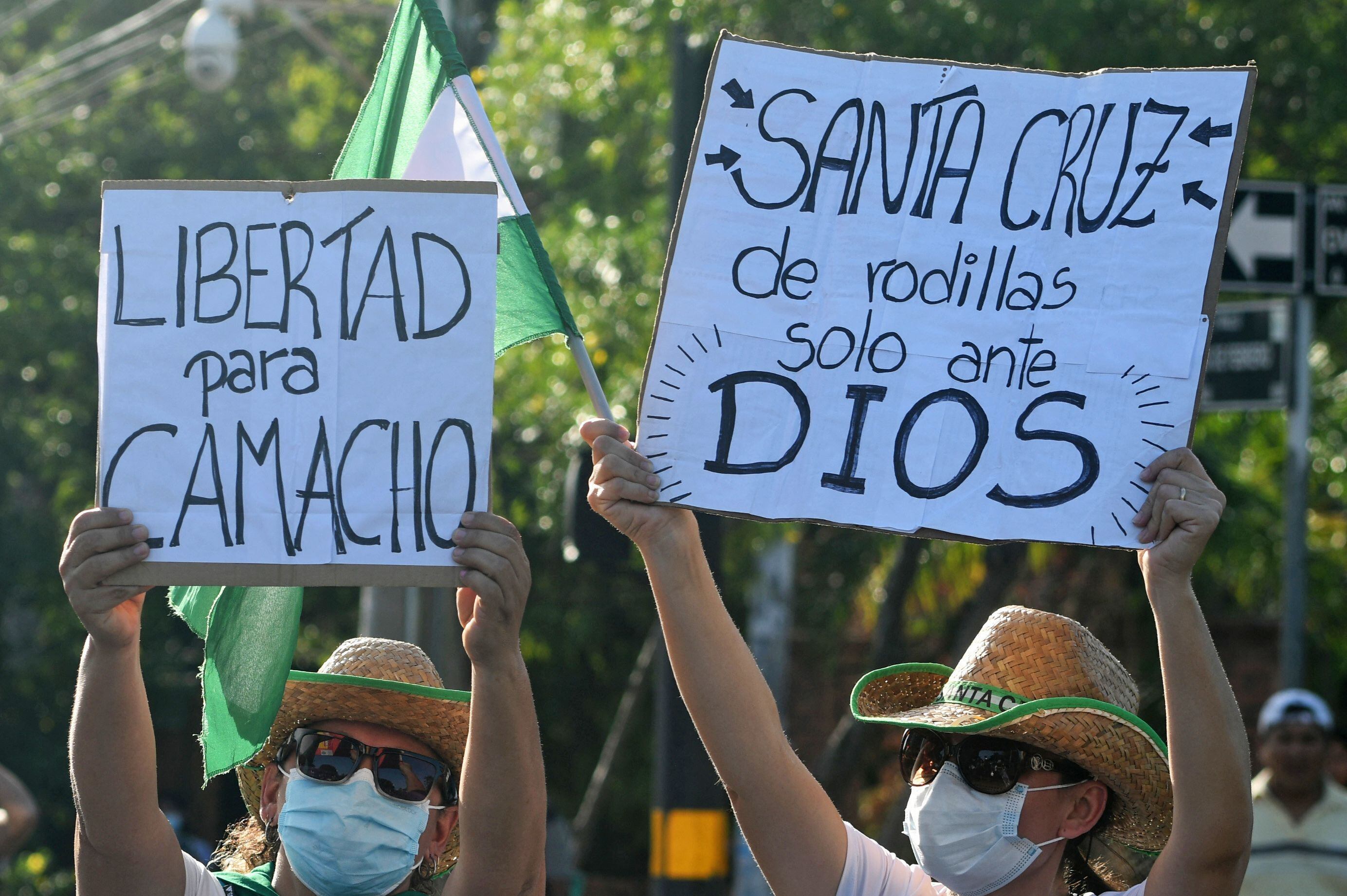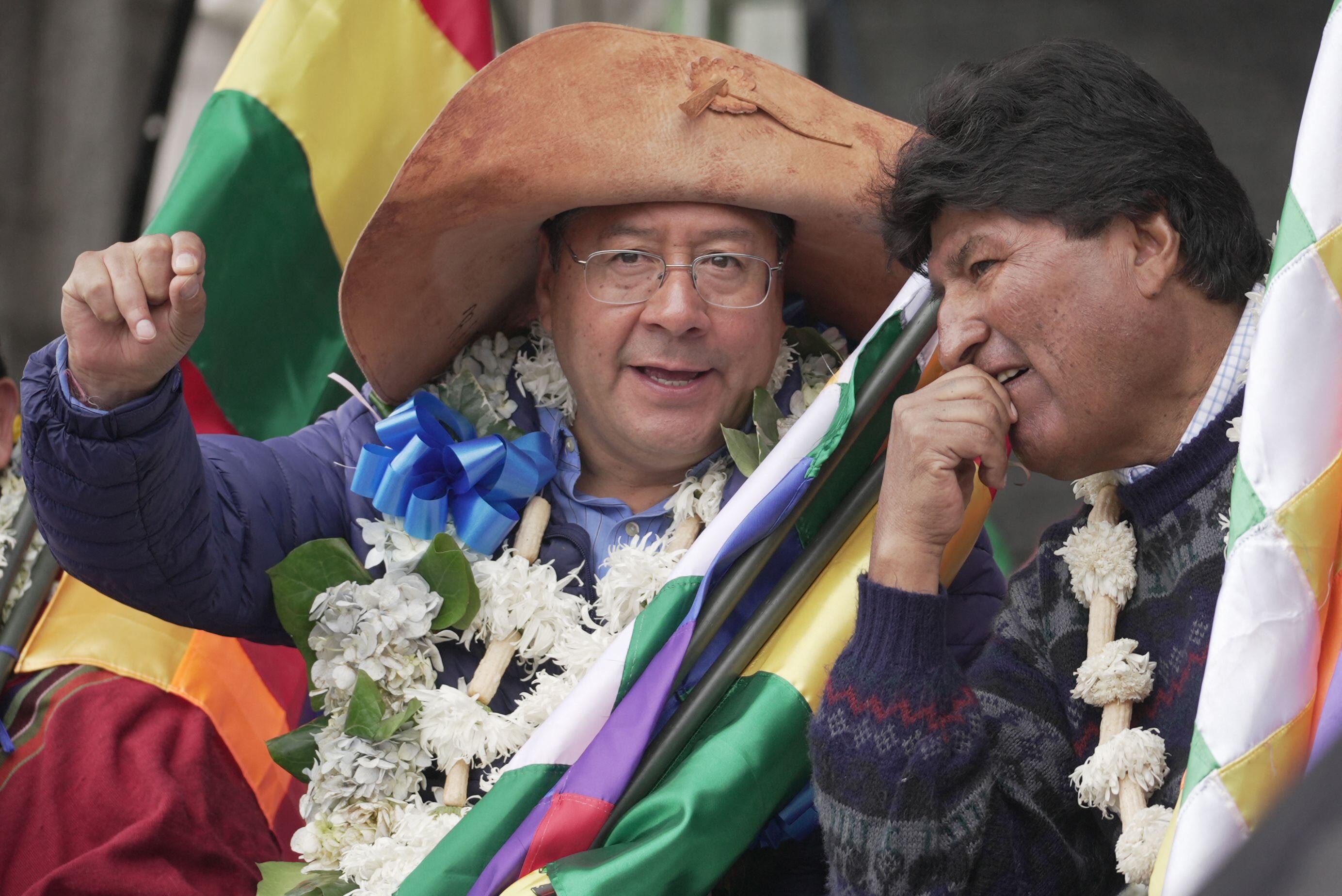Karen Longaric was the interim president’s foreign minister jeanine anezcurrently in prison and sentenced to 10 years in prison by the justice bolivianfor “failure to comply with duties” due to the way in which he placed himself in line of presidential succession after the resignation of Evo Moralesin 2019.
From Berlin, the former foreign minister spoke with El Comercio about the current political situation in Bolivia after the capture of the governor of Santa Cruz, Luis Fernando Camacho, and pointed out openly that her country lives “under a totalitarian regime.”
Can it be considered that there is persecution of the opposition in Bolivia?
Of course yes. I believe that we must start from the following premise: in Bolivia there is no longer a rule of law, but a totalitarian regime governs whose main instrument of persecution, intimidation and disruption of the democratic order is the Judiciary and the Police. And this was clearly seen coming, even from a month before the government of the current president Luis Arce took office, when the Parliament made up mainly of the Movement for Socialism (MAS) repealed in the regulations of Congress the norm that required two thirds for the approval of certain laws, including the approval of processes against former presidents. There was already a political project of the MAS to direct this government, which was democratically elected, towards a dictatorship, and that is what they are at. Inclement political persecution was carried out against the former temporary constitutional president, Jeanine Áñez, and given the little reaction of the opposition political parties and the timid reaction of civil society, they have attacked with greater force against other political leaders, such as the former leader of the Civic Movement From Potosi, Marco Pumari, who has been in prison for several months, and now with the kidnapping, because it was nothing else, of the governor of Santa Cruz, Luis Fernando Camacho.
International organizations have made very clear criticisms of the lack of independence of the Judicial Branch, because it is co-opted by the Executive Branch, and obviously, when the impartiality, independence and autonomy that the powers of the State should have disappear, this becomes a totalitarian regime.
—He tells me that the opposition and civil society had a weak reaction. What was this for?
I think that there was a lot of expectation from some sectors about Luis Arce, trusting that this would be a different government from that of Evo Morales, but it has been the opposite, because we can see a much more aggressive, open and violating attitude of human rights. In the opposition there is a lack of convincing political leadership that can generate support at the national level, the leaders have been focused on their regions and cities of origin and have not been able to demonstrate a national reach. But also, since the time of Evo Morales they began to be intimidated, all of them have had dozens of judicial processes. The MAS government has found the magic formula to intimidate its opponents, with the Public Ministry that no longer defends society but a political party.
All this scenario has contributed to the fact that there is no clear direction for the political opposition. The most visible political leadership in the opposition is that of Luis Fernando Camacho, with his ups and downs, but he has shown that he has majority support in his region, which practically generates economic support for the country.
The MAS sees an enemy in Santa Cruz. Camacho’s arbitrary and illegal detention responds to a political project, which is to seize hold of Santa Cruz, its institutions, productivity, Santa Cruz companies and establish hegemony throughout the country.

—The MAS stopped being a project around Evo Morales? When Arce came to power, it was thought that he would be a puppet of the former president…
The MAS, which is made up mainly of indigenous sectors from western Bolivia, has been able to capture the need, frustration and expectations of social groups that were not fully attended by past governments. And Morales generated a confrontation based on regionalism.
But beyond the internal divisions that exist in the MAS, which is another matter, it is a political mass motivated by prebendalism, corruption, and subsistence based on public administration. The political militancy of the MAS is seeing the illegal acquisition of land in eastern Bolivia, and the total management of public and private institutions in Santa Cruz.
The sectors that support the masismo, which can lean towards Arce or Morales, need to satisfy their expectations, not because of ideology or political program.
And on the other hand, the MAS is clearly supported by that Latin American project promoted by the Puebla Group. It is clear that in Bolivia the Nicaraguan model is being followed, with a government that was democratically elected at the beginning, but which later hardened and has become a totalitarian regime that has put all its political opponents in prison.

—So they are going to continue imprisoning opponents?
Definitely, because that model of government that has been imposed in Venezuela and Nicaragua is the one that is intended to be imposed in Bolivia. They are totalitarian regimes that in the beginning were democratically elected governments, but little by little they have turned the management of the State into an anti-democratic way. And since the international community does not care, has shown itself tolerant and even permissive in the face of the systematic violation of human rights, then these governments feel comfortable. So, I think the MAS is very confident about this, because they do not act alone but under a regional project, with highly experienced advisors. And this is how we saw it from the transitional government of Jeanine Añez, when the Puebla Group did not allow a minute to govern in peace because there was strong pressure, above all, from Argentina and Mexico supporting Evo Morales from his self-exile to destabilize Jeanine Añez. , and they did it.
Source: Elcomercio
I am Jack Morton and I work in 24 News Recorder. I mostly cover world news and I have also authored 24 news recorder. I find this work highly interesting and it allows me to keep up with current events happening around the world.

:quality(75)/cloudfront-us-east-1.images.arcpublishing.com/elcomercio/PTXJPCIJCVELDACM6P2LSTZO6Q.jpg)


:quality(75)/cloudfront-us-east-1.images.arcpublishing.com/elcomercio/6D7LR5GKZFCBFEXPPRLG2XJ3ZI.jpg)
:quality(75)/cloudfront-us-east-1.images.arcpublishing.com/elcomercio/ER4EFPNXJVDR7NMEAKMSYI5PIY.jpg)
:quality(75)/cloudfront-us-east-1.images.arcpublishing.com/elcomercio/KP7TRAVPXFFG5JGUC4EXEOFV7Q.jpg)
